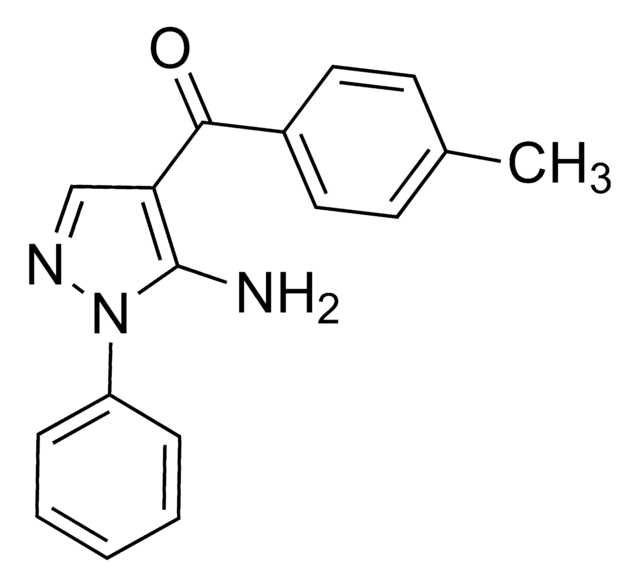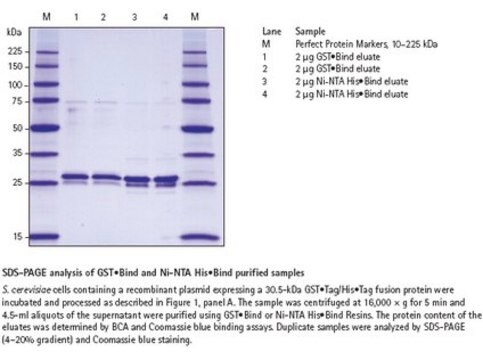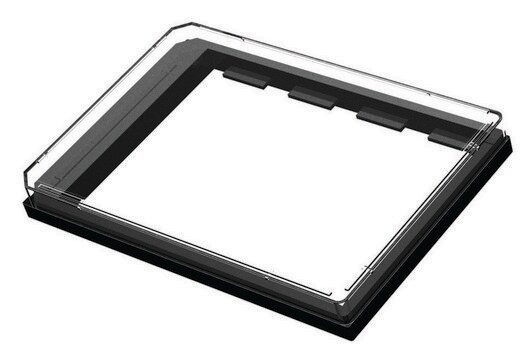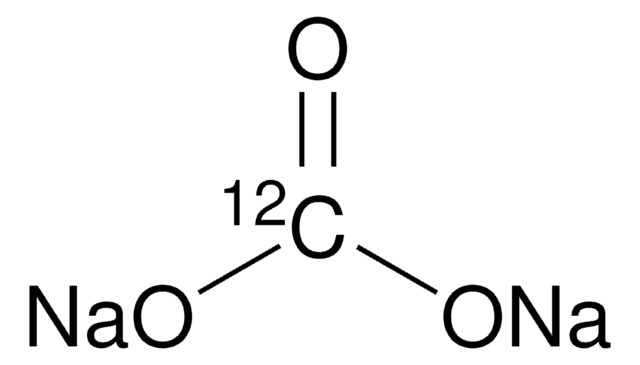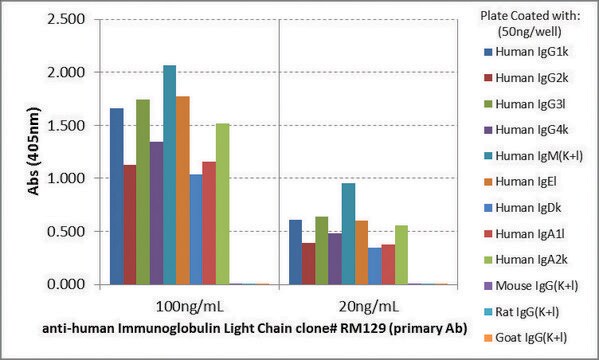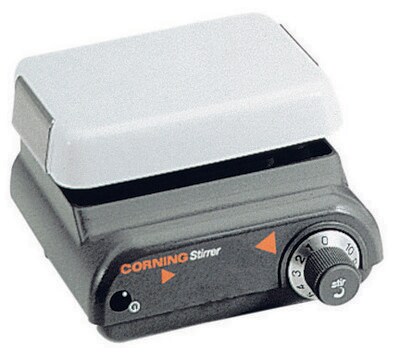SAB4700486
Monoclonal Anti-CD138, azide free antibody produced in mouse
clone B-A38, purified immunoglobulin, buffered aqueous solution
Synonym(s):
Anti-SDC1, Anti-Syndecan 1
Sign Into View Organizational & Contract Pricing
All Photos(1)
About This Item
UNSPSC Code:
12352203
NACRES:
NA.41
Recommended Products
biological source
mouse
conjugate
unconjugated
antibody form
purified immunoglobulin
antibody product type
primary antibodies
clone
B-A38, monoclonal
form
buffered aqueous solution
species reactivity
human
concentration
1 mg/mL
technique(s)
flow cytometry: suitable
isotype
IgG1
NCBI accession no.
UniProt accession no.
shipped in
wet ice
storage temp.
2-8°C
target post-translational modification
unmodified
Gene Information
human ... SDC1(6382)
General description
Cluster of differentiation 138 (CD138), also known as syndecan 1, is a cell surface heparan sulfate proteoglycan. It is encoded by the gene mapped to human chromosome 2p21-p25. The encoded protein belongs to SDC family and is exclusively expressed on epithelial cells. Members of SDC protein family contain an extracellular domain carrying heparan sulfate, a transmembrane domain and a cytoplasmic domain.
The antibody B-A38 recognizes CD138 (syndecan 1), a 65-70 kDa heparan sulfate proteoglycan expressed mainly in the epidermis and plasma cells, but also in growth factor-stimulated lymphocytes.
Immunogen
U266 human peripheral blood myeloma cell line
Application
The reagent is designed for Flow Cytometry analysis. Suggested working dilution for Flow Cytometry is 3-5 μg/mL of sample. Indicated dilution is recommended starting point for use of this product. Working concentrations should be determined by the investigator.
Biochem/physiol Actions
Cluster of differentiation 138 (CD138) along with α2β1 integrin binds to collagen I and regulates cell motility. The encoded protein functions as a coreceptor for variety of biological factors such as, growth factors, angiogenic factors, cytokines and chemokines. CD138 acts as a potential marker for putative circulating CD15+/CD30+ cells in poor outcome Hodgkin lymphoma patients. Genetic variations in the gene is associated with the development of breast cancer. Thus, CD138 can be considered as a potential therapeutic target for inflammatory breast cancer (IBC).
Features and Benefits
Evaluate our antibodies with complete peace of mind. If the antibody does not perform in your application, we will issue a full credit or replacement antibody. Learn more.
Physical form
Solution in azide free phosphate buffered saline, pH 7.4; 0.2 um filter sterilized.
Disclaimer
Unless otherwise stated in our catalog or other company documentation accompanying the product(s), our products are intended for research use only and are not to be used for any other purpose, which includes but is not limited to, unauthorized commercial uses, in vitro diagnostic uses, ex vivo or in vivo therapeutic uses or any type of consumption or application to humans or animals.
Not finding the right product?
Try our Product Selector Tool.
Storage Class Code
12 - Non Combustible Liquids
Flash Point(F)
Not applicable
Flash Point(C)
Not applicable
Choose from one of the most recent versions:
Already Own This Product?
Find documentation for the products that you have recently purchased in the Document Library.
Fibroblast growth factor-2 (FGF2) and syndecan-1 (SDC1) are potential biomarkers for putative circulating CD15+/CD30+ cells in poor outcome Hodgkin lymphoma patients
Gharbaran R
Journal of Hematology & Oncology (2013)
Anita Murer et al.
PLoS pathogens, 14(4), e1007039-e1007039 (2018-05-01)
The oncogenic Epstein Barr virus (EBV) infects the majority of the human population and usually persists within its host for life without symptoms. The EBV oncoproteins nuclear antigen 3A (EBNA3A) and 3C (EBNA3C) are required for B cell transformation in
Syndecan-1 is a novel molecular marker for triple negative inflammatory breast cancer and modulates the cancer stem cell phenotype via the IL-6/STAT3, Notch and EGFR signaling pathways
Ibrahim SA
Molecular Cancer, 16 (2017)
Sdc1 Negatively Modulates Carcinoma Cell Motility and Invasion
Ishikawa T and Kramer RH.
Experimental Cell Research, 316, 951-965 (2010)
Recurrent gene amplifications in human type I endometrial adenocarcinoma detected by fluorescence in situ hybridization
Samuelson E
Cancer Genetics and Cytogenetics, 181, 25-30 (2008)
Our team of scientists has experience in all areas of research including Life Science, Material Science, Chemical Synthesis, Chromatography, Analytical and many others.
Contact Technical Service